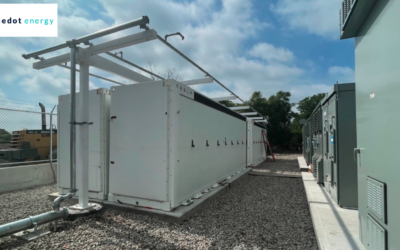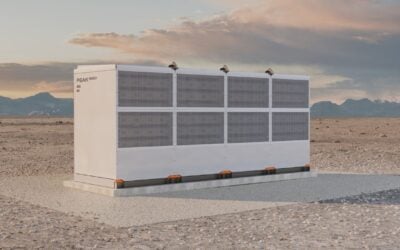
The first phase of a residential battery storage program in the US state of New Hampshire has met all its conditions and saved the utility “more than expected” after an initial 100 units were deployed.
The Battery Storage Program from local utility Liberty Utilities was approved by the State of New Hampshire Public Utilities Commission in 2019 and involved Liberty subsidising the purchase of residential battery storage systems.
The batteries would then be used to charge from the grid during off-peak hours and provide power to the home during peak hours, with usage and performance monitored and data collected by Liberty. In extreme cases Liberty can activate the batteries to provide power to the grid too, for which customers would be compensated.
The first phase, a pilot part of the project, involved the deployment of 100 systems. Those have now been deployed and operational for at least 18 months and Liberty now has until the end of May 2023 to provide a proposal on how it plans to move to phase two of the programme.
Try Premium for just $1
- Full premium access for the first month at only $1
- Converts to an annual rate after 30 days unless cancelled
- Cancel anytime during the trial period
Premium Benefits
- Expert industry analysis and interviews
- Digital access to PV Tech Power journal
- Exclusive event discounts
Or get the full Premium subscription right away
Or continue reading this article for free
“The Commission finds that the first phase of the Battery Pilot has been deployed and that several conditions related to the deployment and evaluation period of Phase 1 of the Battery Pilot have been met,” the Commission’s docket read.
New Hampshire is in the grid territory operated by ISO New England (ISO-NE), which also serves Connecticut, Maine, Massachusetts, Rhode Island, and Vermont.
The docket said that in the evaluation period (December 2020 – November 2022) Liberty dispatched the deployed batteries coincident with the ISO-NE system peak with an accuracy of 79% based on the weighted average monthly coincident peak, or 81% based on the weighted average annual coincident peak.
“(Third-party consultant) Guidehouse concluded that actual savings (from the programme) were higher than projected savings given higher-than-projected performance during both monthly and annual coincident peaks, after adjusting figures to match the estimated number of batteries installed and system charges in the Settlement Agreement,” the Commission added.
“I am extremely enthusiastic about the pilot and would like to see it continue to thrive and even expand,” Donald Kreis, New Hampshire’s consumer advocate on energy issues told a local outlet.
Customers wanting to enrol in phase one either had to pay US$50 a month for 10 years or a one-off upfront fee of US$4,866, and the home storage system chosen by Liberty was the Tesla Powerwall 2. Each customer needed to install two in their home, and installation, service and maintenance has been covered in full by Liberty. Enrolled customers have been moved on to time-of-use (TOU) rates.
Programmes such as these have been seen across the globe, with Energy-Storage.news most recently reporting on similar ones in Australia and Puerto Rico.
Energy-Storage.news’ publisher Solar Media will host the 5th Energy Storage Summit USA, 28-29 March 2023 in Austin, Texas. Featuring a packed programme of panels, presentations and fireside chats from industry leaders focusing on accelerating the market for energy storage across the country. For more information, go to the website.





